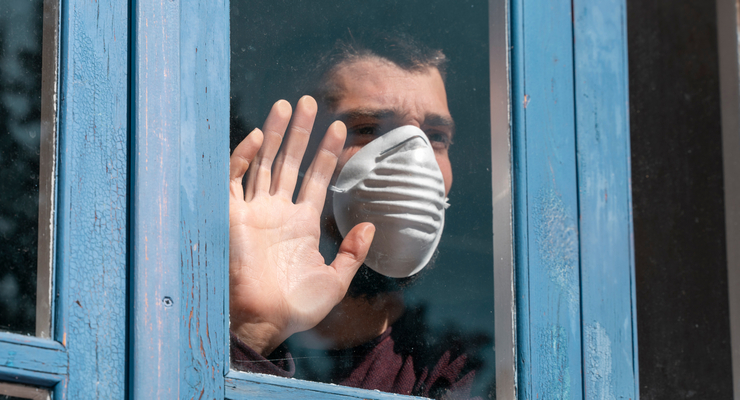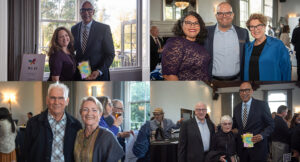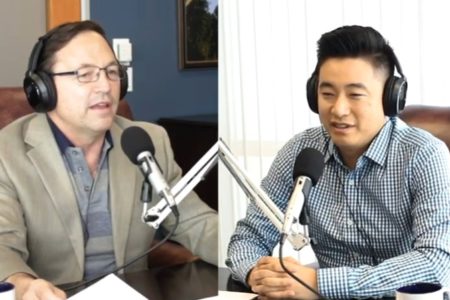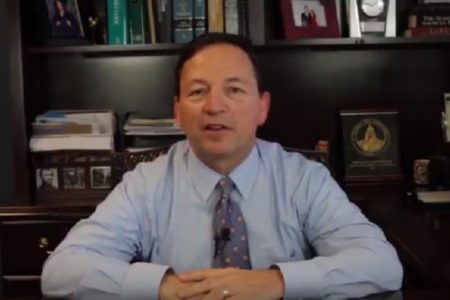
Should the famed B2 “Stealth” bomber come roaring low out of the western skies on a flight path straight over Colorado Boulevard this Friday morning, New Year’s Day, you might just want to take cover. Because it’s not the start of the Rose Parade.
For the first time in most Pasadenans’ lifetime, there will be no Rose Parade or Rose Bowl game. There will be no camping on Colorado Boulevard, and no families lining the streets, let alone any worldwide television parade audience.
The thoroughfare will be mostly silent (except for caravans organized by various groups) as it has been for the past eight months throughout the pandemic. Even the famed Rose Bowl game will be played in Arlington, Texas.
So what’s left? How does one spend the beginnings of the new year deep in the middle of a worldwide shutdown? You could naturally spend the day in quiet reflection with family and friends, or opt for a solitary hike. Or you could remain at home.
And it’s going to take some resourcefulness to find a place for that hike, too, since County officials are urging residents not to gather at all on local trails or in parks.
“It seems that people are now just bored, and others feel like the walls are just closing in on them,” said Pasadena therapist Michelle Shahbazyan Tuesday.
It gets darker.
Shahbazyan added, “This (depression) is as severe as I have ever seen it. People are scared to see their therapists, they’re scared to see anyone, and they’re not reaching out. And it’s getting worse and worse.
“It’s a very difficult experience,” she added.
According to a November 2020 study by the Brookings Institute, “In the U.S., pre-COVID-19, when stock markets were booming and the official unemployment was at record lows, deaths of despair—due to opioids and suicides—took over 1 million lives in just over a decade. These were concentrated among less than college educated middle aged whites—a privileged group when manufacturing jobs were plentiful, but then experienced declines in income and social cohesion as those jobs disappeared. Pockets of deep vulnerability—and ill-being—persisted and even deepened in the decade of steady growth following the financial crisis.”
Cue the pandemic.
Measurements of well-being—health, employment, jobs, and the like—plummeted once the coronavirus took over the world, said the Brookings study.
“Since COVID-19, these trends and other pre-existing inequities have been exacerbated and are reflected in deep declines in reported well-being,” it pointed out.
“Low-income respondents significantly reported more negative emotions than did high income ones,” said the report, “including more worry, sadness, loneliness, and anger.”
There were also significant increases in negative emotions relative to earlier years for all income groups. But, as the Brookings study also pointed out, not everyone is necessarily caught in the grip of despair.
“Despite these high levels of human suffering,” said the study, “there are also some surprisingly positive trends. Surveys find that, on average, humans are remarkably resilient and can face a wide range of challenges—from poverty to crime to health problems—and return to their initial high levels of well-being. Within the U.S., groups that are traditionally resilient in well-being terms, such as poor Blacks and Hispanics, display it during the pandemic. While these same groups are much more likely to contract and/or die from COVID-19, they also report better mental health and more optimism for the future than whites during the pandemic.”
So this is the time to seek out that fresh air and that quiet reflective time, said Shahbazyan.
“Any kind of being in touch with nature, is huge, it’s very helpful,” she said. ‘This is the time to remind yourself that the world has been through worse things, and there was a time when we lived this fantastic life, and it wasn’t that long ago.”
As Shahbazyan reflected, “This too shall pass, and it’s important to try to create something good from such a difficult time.”





